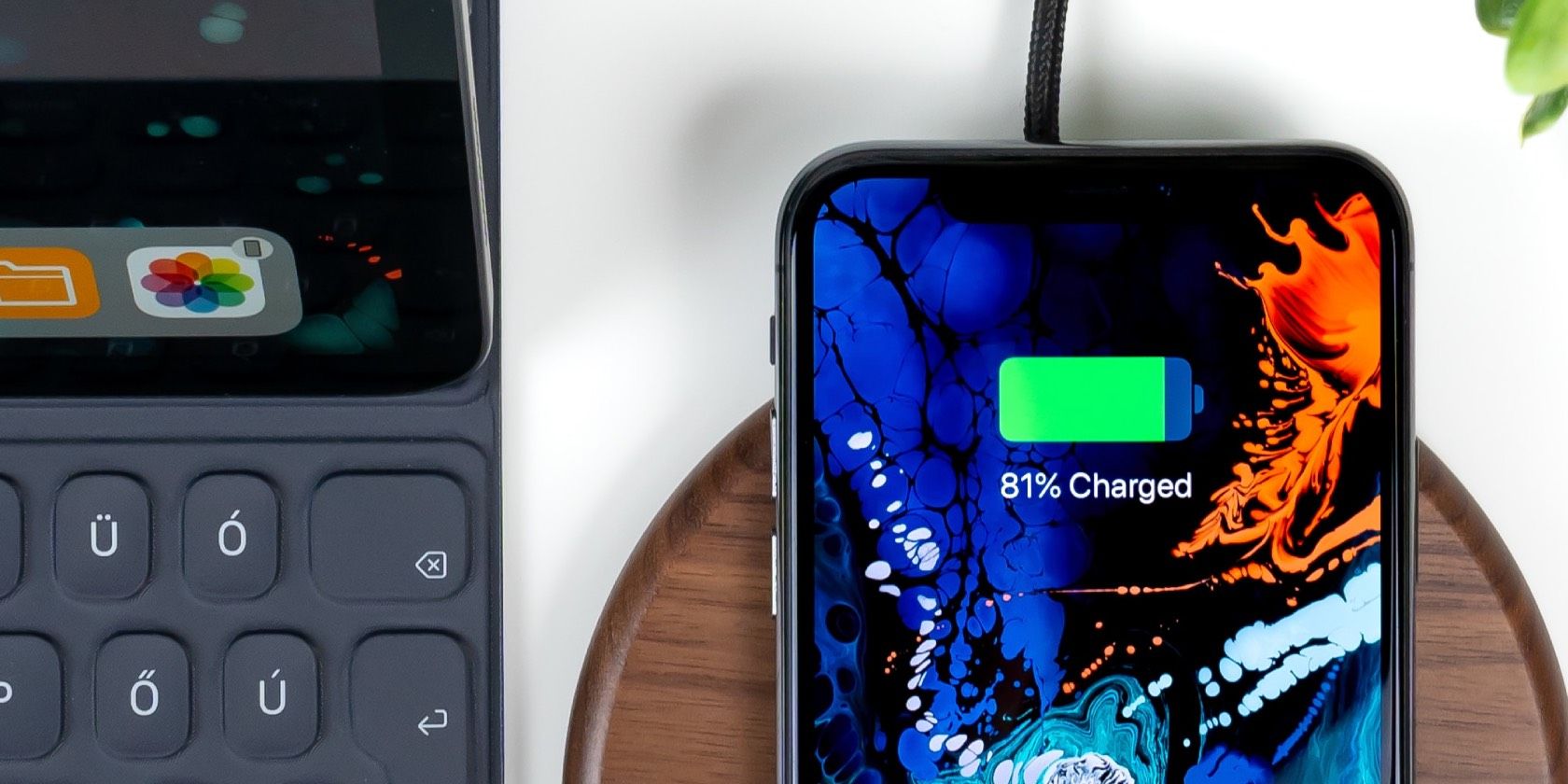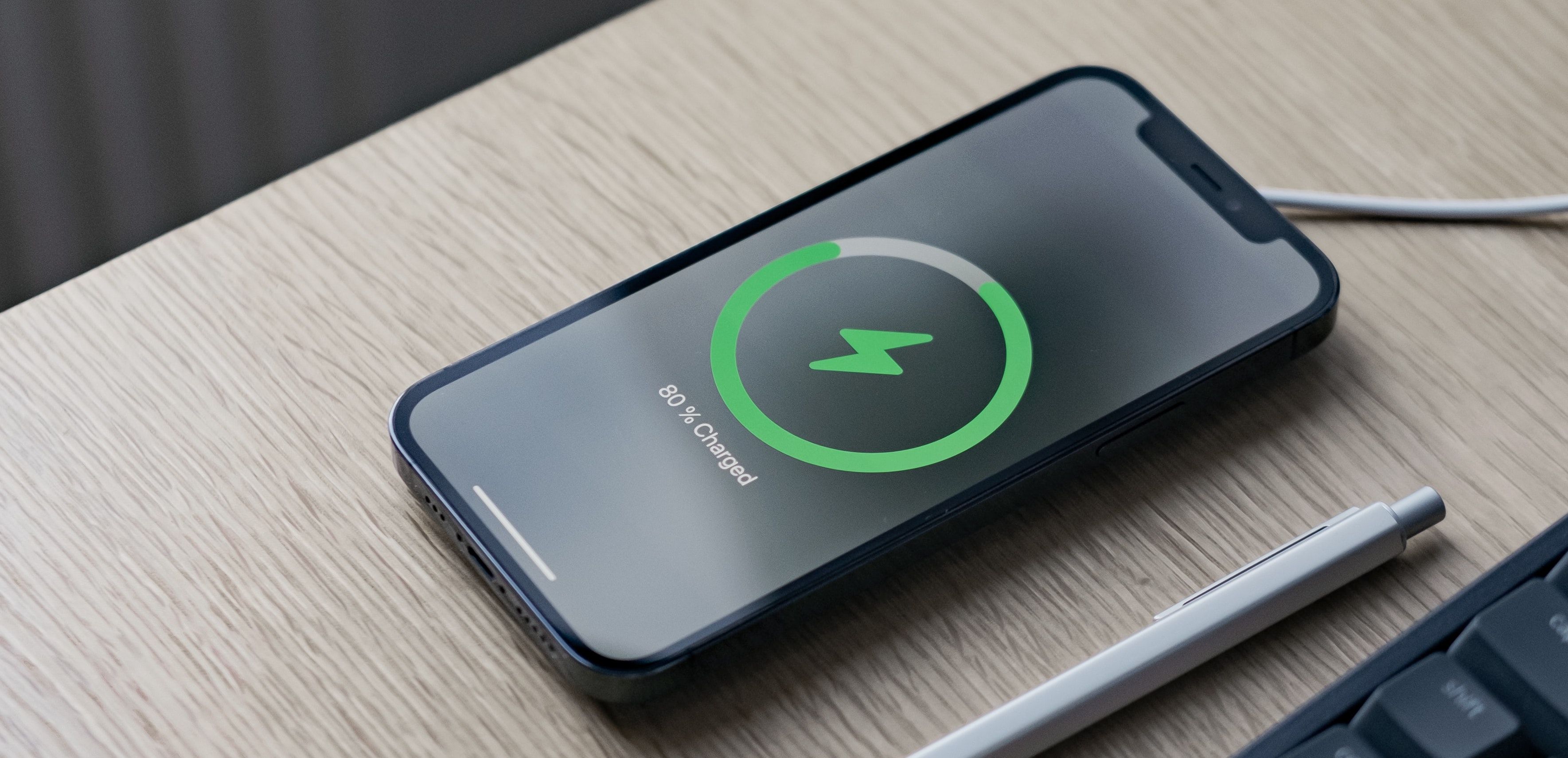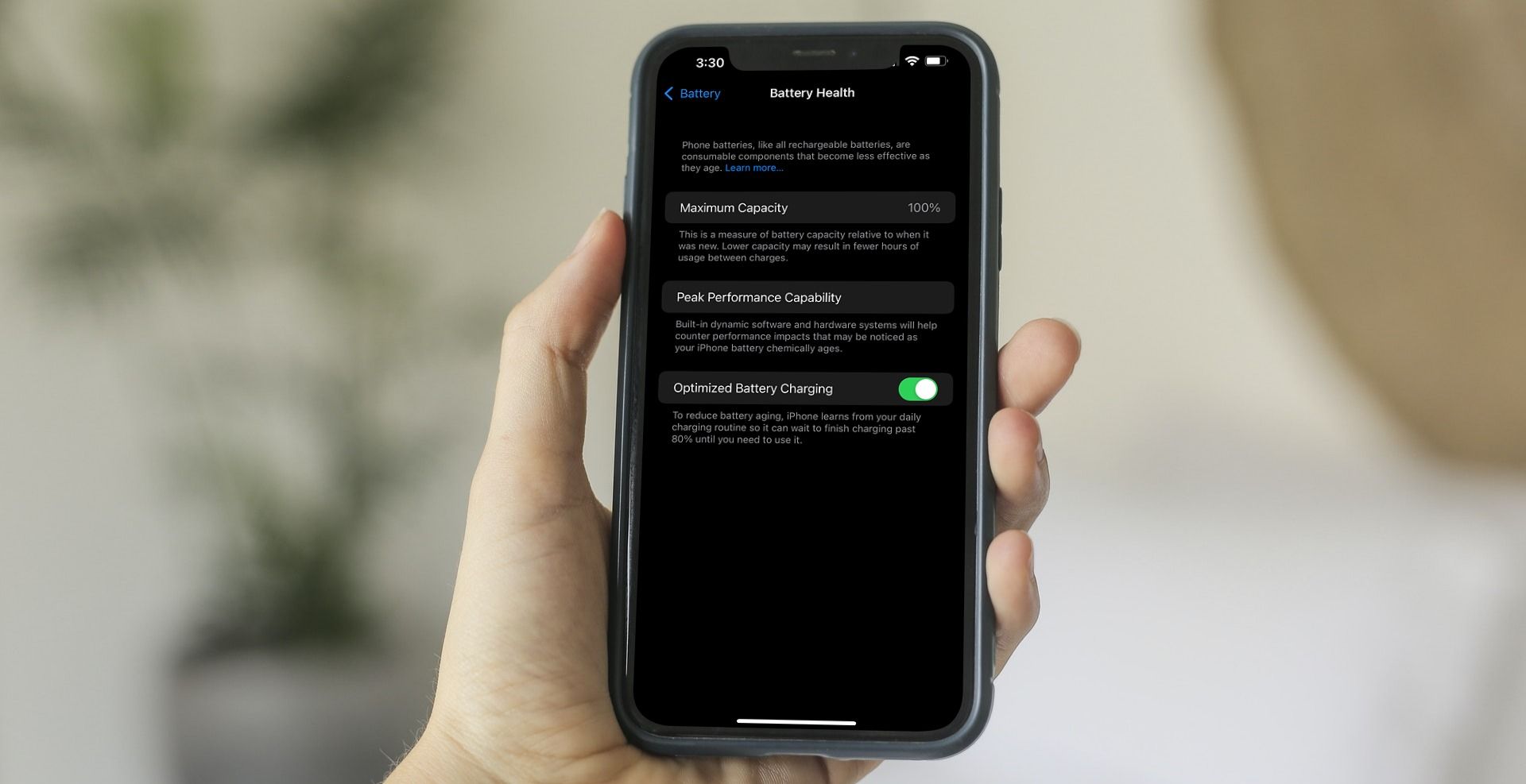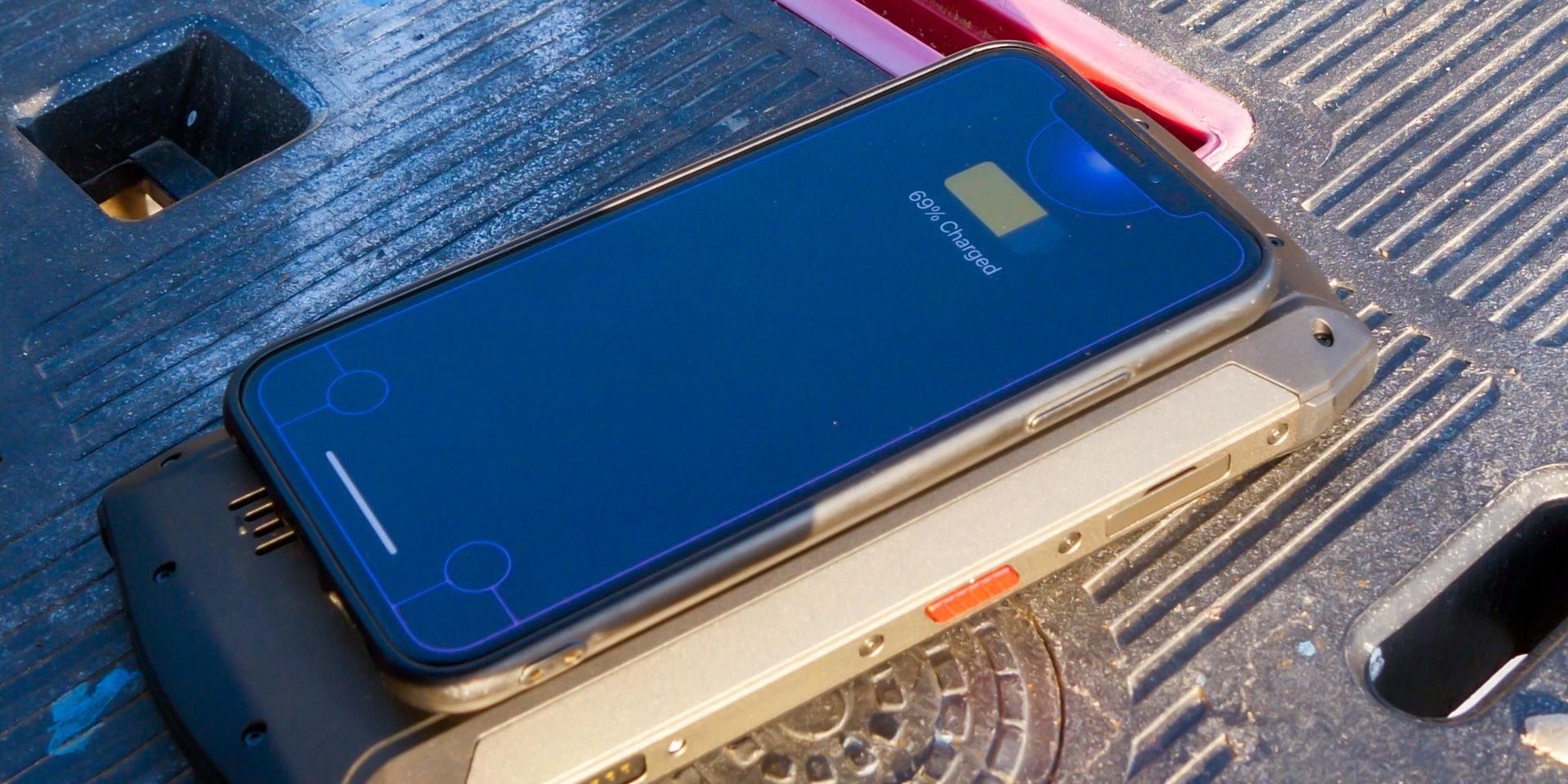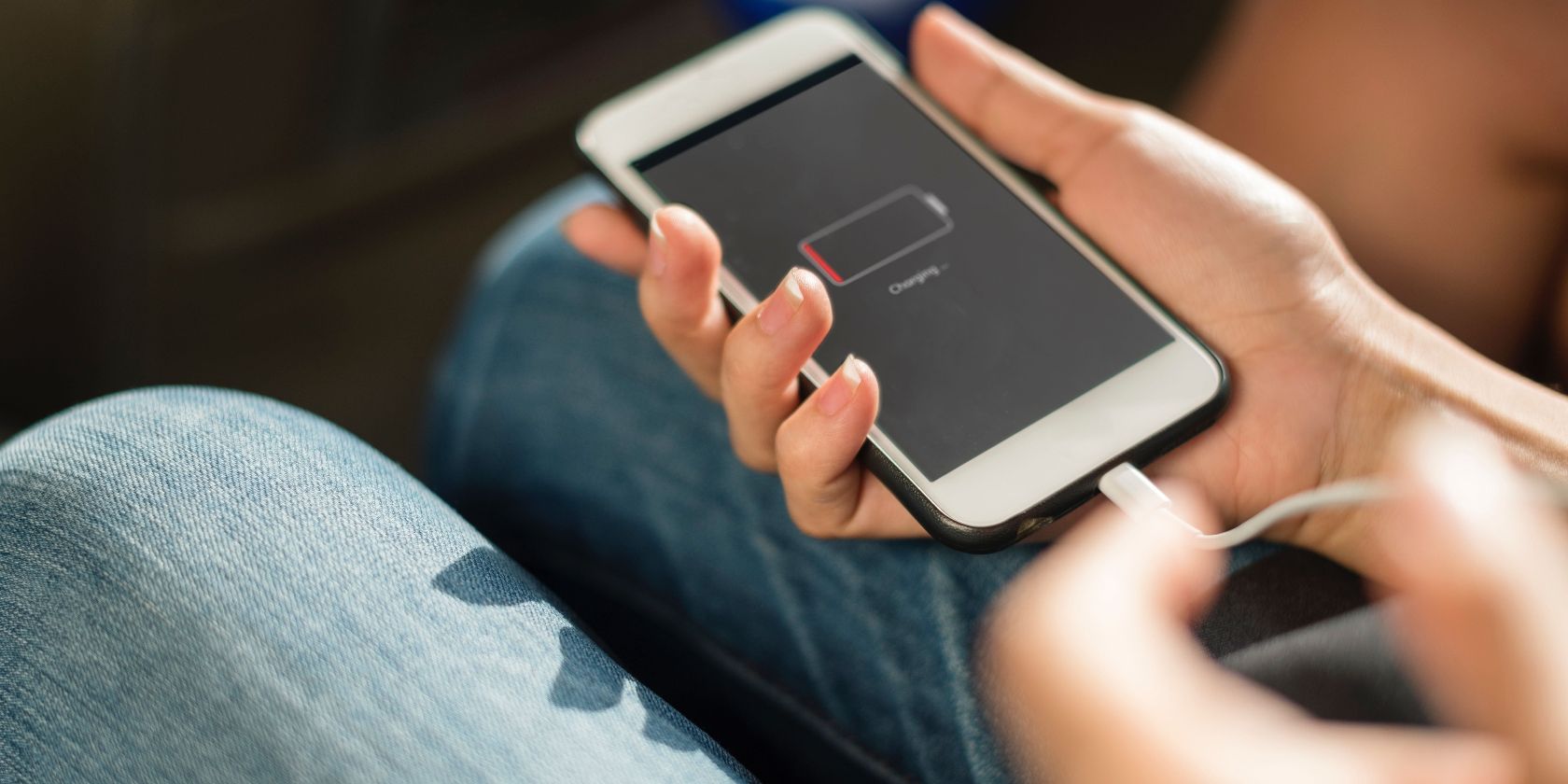If you are investing in a flagship smartphone, chances are you are also looking to pick up a wireless charger. They are convenient, and many current models are fast enough even to replace a wired one.
But despite its convenience, some people are still afraid of adopting the tech. One quick look around the internet reveals that people are often concerned if wireless charging reduces battery life.
So, is wireless charging bad for the battery? Let's look.
How Does Wireless Charging Work?
You need to know how wireless charging works to understand why it doesn't damage batteries. Wireless smartphone charging uses electromagnetic induction to transfer electric energy from the charger to the smartphone. Electromagnetic induction is a phenomenon by which a rapidly changing magnetic field produces electric energy in a closed loop that interacts with that magnetic field.
Let's take the example of wirelessly charging a smartphone. For wireless charging to work, you need a phone that supports wireless charging and a compatible wireless charger. When you place a compatible smartphone on a wireless charger, a rapidly changing magnetic field interacts with the copper coil inside the smartphone, inducing an electric current. The electric current produced charges the battery. Compatibility is ensured through the use of open wireless charging standards.
This form of wireless charging, where two copper coils are placed in direct proximity, is called tightly-coupled electromagnetic inductive charging. But, as the name suggests, for this type of wireless charging to work, the copper coils must align. In other words, if you fail to place your smartphone on the pad correctly, it will charge slowly or won't charge at all.
One possible solution is to force coils to be aligned. For example, apple's MagSafe for iPhones, implemented in the Qi2 standard, uses magnets to ensure optimal positioning.
Other forms of wireless charging technologies aim to solve this problem. Loosely-coupled resonance charging can deliver a charge up to a few centimeters away, while Radio Frequency-based charging can charge gadgets wirelessly at distances exceeding a few feet. With RF charging, you might be able to charge your phone without going anywhere near a charger in the near future.
Is Wireless Charging Bad For Your Phone?
Wireless charging doesn't damage your phone battery. This is a common misconception, but simply not true. However, people who believe that wireless charging damages a smartphone's battery point out that wireless charging generates more heat than wired charging, which can place your battery under more strain.
While that is true to some extent, the heat produced by wireless charging is manageable by your smartphone and shouldn't damage your smartphone battery.
Heat Output From Wireless Charging
Wireless charging produces more heat than conventional wired charging because of how it works. One side effect of electromagnetic induction is excessive heat generation. For instance, induction cookers use the heat generated by electromagnetic induction to heat the cookware.
So, if not properly managed, the heat generated by wireless charging can damage your smartphone. Thankfully, wireless charging standards like Qi have strict guidelines for this problem.
First, any qualifying Qi-certified wireless charger must regulate the charging speed to manage heat. For instance, if a Qi-certified wireless charger detects excessive heat, it will reduce charging speeds. Lower energy output equals lower heat, so your phone will remain safe.
Second, during wired or wireless charging, the battery itself doesn't heat up. In the case of wireless charging, only the copper coil inside the phone heats up—phones have a layer of thermal isolation covering them. So, as long as the heat is contained and doesn't exceed safe limits, it poses no direct threat to your smartphone battery.
In short, although it does produce marginally more heat than wired charging, wireless chargers are not bad for your phone. Not more than regular charging, that is.
The Effect of Wireless Charging on Battery Charge Cycles
Wireless charging doesn't affect battery charge cycles any more than regular wired charging, as battery charge cycles have nothing to do with the form of charging you are using. It only has to do with the frequency of charging.
If you charge your phone multiple times a day, no matter the charging tech you use, you will notice a significant reduction in the battery charge cycles left.
Put simply, wireless charging will not harm your phone's battery. Just don't run around plopping your smartphone down on the charging pad whenever the battery drops a few percentage points, as constant charging will damage your smartphone battery.
Is Wireless Charging Less Efficient Than Wired Charging?
Wireless charging is less efficient than wired, but there are other things to consider.
Testing performed by OneZero found that wireless charging uses, on average, 47% more power than wired charging.
The added power consumption won't register on your power bills for a single wireless charger. But, according to iFixit, if all smartphone users in the world switched to wireless charging, it would require the construction of almost 73 small-sized coal power plants globally. Building this many coal power plants would have a significant environmental impact.
In other words, you can charge your phone wirelessly without seeing any increase in your electricity bills. But a worldwide shift to wireless charging would be less than ideal.
Does Keeping a Smartphone Fully Charged Decrease Battery Health?
Keeping your phone fully charged puts the battery under increased stress, resulting in faster degradation. Therefore, a partial charge during the day, if you worry about running out of juice, is better for the battery life.
Current science suggests that, ideally, your phone's battery should remain between 20% and 80% whenever possible. This means avoiding fully charging or fully discharging your smartphone.
Lower percentages mean the battery will struggle to keep the required voltage for the phone to work. Charging above 80% puts the battery under strain because there's little headroom for the additional power flowing into it. Both situations decrease the battery's lifespan.
Manufacturers are aware of this, and most developed solutions—for charging past a certain capacity, at least. These either lower power output or prevent electricity from reaching the battery, even if the device is still plugged in, once the phone reaches a threshold. Usually, this percentage is user-defined.
Apple calls this Optimized Battery Charging in Macs, iPhones, and iPads. Other manufacturers label it "smart charging" or whatever the marketing department deems catchy enough.
There are other ways you can change charging habits to improve the battery life of your smartphone. However, none of them involve favoring wired charging over wireless.
Does Fast Charging Decrease Battery Health?
It's easy to understand how fast charging works: the charger outputs more electricity into the battery in less time. It does decrease battery health, but not as much as some people may have you believe. Neither topping up your juice using higher speeds nor using wireless chargers damage the battery to a notable degree.
Of course, there is an inherent negative effect of fast charging on batteries because of the excessive amount of heat it produces. However, smartphone makers pack in protection with fast charging tech to make it safe, so it doesn't damage the battery. One such protection is the dynamic charging rate.
For instance, almost all fast charging techniques use the peak charging speed to charge the battery to 50% in as little time as possible. The charging speed then drops significantly to charge the rest. This is done to keep the excessive heat output from damaging the battery.
The 6 Best Ways to Preserve Your Smartphone Battery's Health
Modern smartphone batteries are typically rated for a few hundred charge cycles. In most cases, you will need to replace the battery after a few years of use. You can, however, implement some simple habits to make the battery last a while longer and protect your smartphone battery from damage.
- Keep your phone's battery between 20% and 80%.
- Don't let the battery drop to zero frequently.
- Avoid keeping the phone plugged in when the battery's full.
- Invest in good-quality charging pads, cables, and bricks.
- If charging wirelessly, don't keep your phone on the pad at all times
- Try to minimize fast charging use.
Do all the above, and your smartphone battery is sure to last a while. And remember, you don't need to avoid wireless charging to protect your smartphone battery life!

